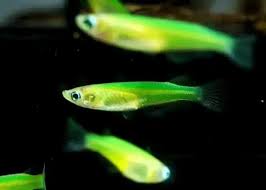
The history and legacy of the Chinese royal family, spanning over two thousand years of dynastic rule, has been a source of fascination for many. From the ancient imperial courts of the Tang and Song dynasties to the final days of the Qing dynasty, China’s royal family played a significant role in shaping the nation’s culture, politics, and social structure. In modern times, the intrigue surrounding Chinese royalty has been immortalized in various forms of popular culture, including films, documentaries, and literature. These works offer a glimpse into the lavish lives, political machinations, and philosophical ideals that defined the Chinese monarchy.
Movies and books about the Chinese royal family not only entertain but also provide insight into the grandeur, complexities, and tragedies of royal life. This article explores some of the most notable films and books that have delved into the history of the Chinese imperial family, from historical dramas to fictionalized accounts that capture the spirit of China’s imperial past.
The Chinese Royal Family on the Silver Screen
Chinese cinema has a long tradition of exploring the country’s imperial history, with the Chinese royal family often serving as the focal point of such narratives. Several films, from epics to biographical stories, have brought the grandeur and struggles of the royal courts to life for audiences worldwide. These films explore themes of power, corruption, love, betrayal, and the profound role that the royal family played in shaping China’s cultural identity.
1. The Last Emperor (1987)
Perhaps one of the most famous films about the Chinese royal family is The Last Emperor, directed by Bernardo Bertolucci. The movie tells the story of Puyi, the last emperor of China and the final ruler of the Qing dynasty, who was enthroned at the age of three and later abdicated after the revolution of 1911. Puyi’s life was marked by dramatic political shifts, and the film explores his experiences as a young emperor, his eventual deposition, and his years as a puppet ruler under Japanese occupation in Manchukuo.
The Last Emperor won multiple Academy Awards, including Best Picture, Best Director, and Best Adapted Screenplay. It is celebrated for its lavish portrayal of the Forbidden City, intricate costumes, and its exploration of the psychological and political struggles faced by the last emperor of China. The film is significant not only for its cinematic excellence but also for its portrayal of a pivotal moment in Chinese history—the fall of the Qing dynasty and the rise of modern China.
2. The Emperor and the Assassin (1998)
Directed by Chen Kaige, The Emperor and the Assassin is a historical drama that delves into the life of Qin Shi Huang, the first emperor of China and the founder of the Qin dynasty. The film is set during the Warring States period and focuses on the emperor’s quest to unify China through ruthless tactics. It centers around the dramatic relationship between the emperor, his concubine, and the assassin sent to kill him.
While The Emperor and the Assassin is a fictionalized account of historical events, it reflects the complexities and brutal nature of imperial rule in ancient China. The film addresses themes of power, loyalty, and sacrifice, providing viewers with a nuanced understanding of the moral dilemmas faced by those in power. The movie’s lavish costumes, stunning cinematography, and portrayal of ancient Chinese politics make it a must-watch for anyone interested in the history of Chinese royalty.
3. Curse of the Golden Flower (2006)
Directed by Zhang Yimou, Curse of the Golden Flower is a historical drama that tells the story of a fictional imperial family during the Tang dynasty. The film stars Gong Li and Chow Yun-fat, portraying a forbidden romance, political intrigue, and family betrayal within the walls of the imperial court. The movie is set against the backdrop of the emperor’s palace, and its lavish costumes and visually stunning set pieces help bring the opulence and decadence of the royal court to life.
Although the film is set during the Tang dynasty, it explores themes that are common across Chinese dynasties—family loyalty, the dangers of unchecked power, and the consequences of political betrayal. Curse of the Golden Flower is known for its opulent visuals and tragic narrative, capturing the complex relationships within the royal family and the underlying tension that defines imperial life.
4. The Blue Kite (1993)
While not directly about the royal family, The Blue Kite, directed by Tian Zhuangzhuang, offers a poignant look at Chinese society during the time of the Cultural Revolution. The film focuses on the political turmoil and personal tragedies experienced by a young boy and his family, who are deeply affected by the fall of the imperial system and the rise of communist rule.
The film highlights the dramatic shift from the Qing dynasty to the Republic of China and beyond, offering viewers a glimpse of how the monarchy’s collapse impacted the broader populace. Through its portrayal of family and political upheaval, The Blue Kite provides insight into the societal and cultural changes that followed the end of the imperial system in China.
Books on the Chinese Royal Family
In addition to films, books about the Chinese royal family provide a more in-depth exploration of the imperial system, its rulers, and their legacies. From biographies to historical fiction, these books paint a complex portrait of the royal family’s role in shaping Chinese culture and history.
1. The Last Empress by Anchee Min (1994)
The Last Empress is a historical novel by Anchee Min that tells the story of Empress Dowager Cixi, the powerful and controversial figure who effectively ruled China during the late Qing dynasty. Known for her cunning political maneuvering, Empress Dowager Cixi was a key figure in the downfall of the Qing dynasty. Min’s novel offers a fictionalized account of her life, exploring her rise to power, her relationships with the emperor, and her role in shaping Chinese politics.
The novel is rich in historical detail, offering insights into the complexities of court life and the often brutal politics of the imperial family. Min’s portrayal of Cixi as both a ruler and a woman is nuanced, shedding light on the challenges she faced as a female monarch in a patriarchal society.
2. The Emperor’s Tomb by Christopher S. Stewart (2016)
In The Emperor’s Tomb, Christopher S. Stewart takes readers on a journey through the history of the Qing dynasty, focusing on the lives of its emperors and the events that shaped their reigns. The book examines the imperial tombs, which house the remains of the emperors and their families, and provides a deep dive into the intricacies of royal life in ancient China.
Stewart’s book is a blend of historical research and personal exploration, offering a unique perspective on the legacy of the Qing dynasty and the role of the royal family in Chinese history. Through vivid descriptions of the tombs and the artifacts found within them, the book offers readers a glimpse into the world of the Chinese emperors and their elaborate burial customs.
3. Empress Dowager Cixi: The Concubine Who Launched Modern China by Jung Chang (2013)
In this biography, Jung Chang provides a comprehensive look at the life of Empress Dowager Cixi, one of the most influential figures in Chinese history. The book challenges traditional views of Cixi as a power-hungry and manipulative figure, instead portraying her as a shrewd and capable ruler who steered China through a time of immense political and social change.
Chang’s biography draws on extensive research, including access to historical documents and personal letters, to provide a portrait of Cixi as a woman who navigated the treacherous waters of imperial politics. The book also explores the broader context of China’s transition from the imperial system to the modern nation-state.
4. The Good Earth by Pearl S. Buck (1931)
Although not directly focused on the Chinese royal family, Pearl S. Buck’s The Good Earth is a novel that explores the lives of Chinese peasants during the late Qing dynasty and the early years of the Republic of China. The novel follows the life of Wang Lung, a farmer who rises from poverty to wealth, and it provides a vivid portrayal of the social and economic conditions of the time.
Through the lens of Wang Lung’s experiences, Buck’s novel offers readers a unique perspective on the changes taking place in Chinese society during the fall of the imperial system. While the royal family is not central to the narrative, the book’s depiction of China’s shifting political and social landscape offers valuable insight into the broader impact of the monarchy’s downfall.
Conclusion
The stories of China’s royal family, from their triumphs to their tragedies, continue to captivate the imagination of audiences around the world. Through films and books, we can explore the grandeur and complexities of the Chinese imperial system, learning about the rulers who shaped the course of Chinese history. Whether through the tragic tale of the last emperor in The Last Emperor or the fictionalized account of Empress Dowager Cixi in The Last Empress, these works provide a fascinating window into the lives of those who once wielded unparalleled power.
These films and books not only serve as entertainment but also as historical records, helping us understand the enduring legacy of the Chinese royal family and the impact of their rule on modern Chinese society. Through the lens of these creative works, we gain a deeper appreciation of the cultural, political, and social complexities that defined one of the world’s oldest and most influential monarchies.









